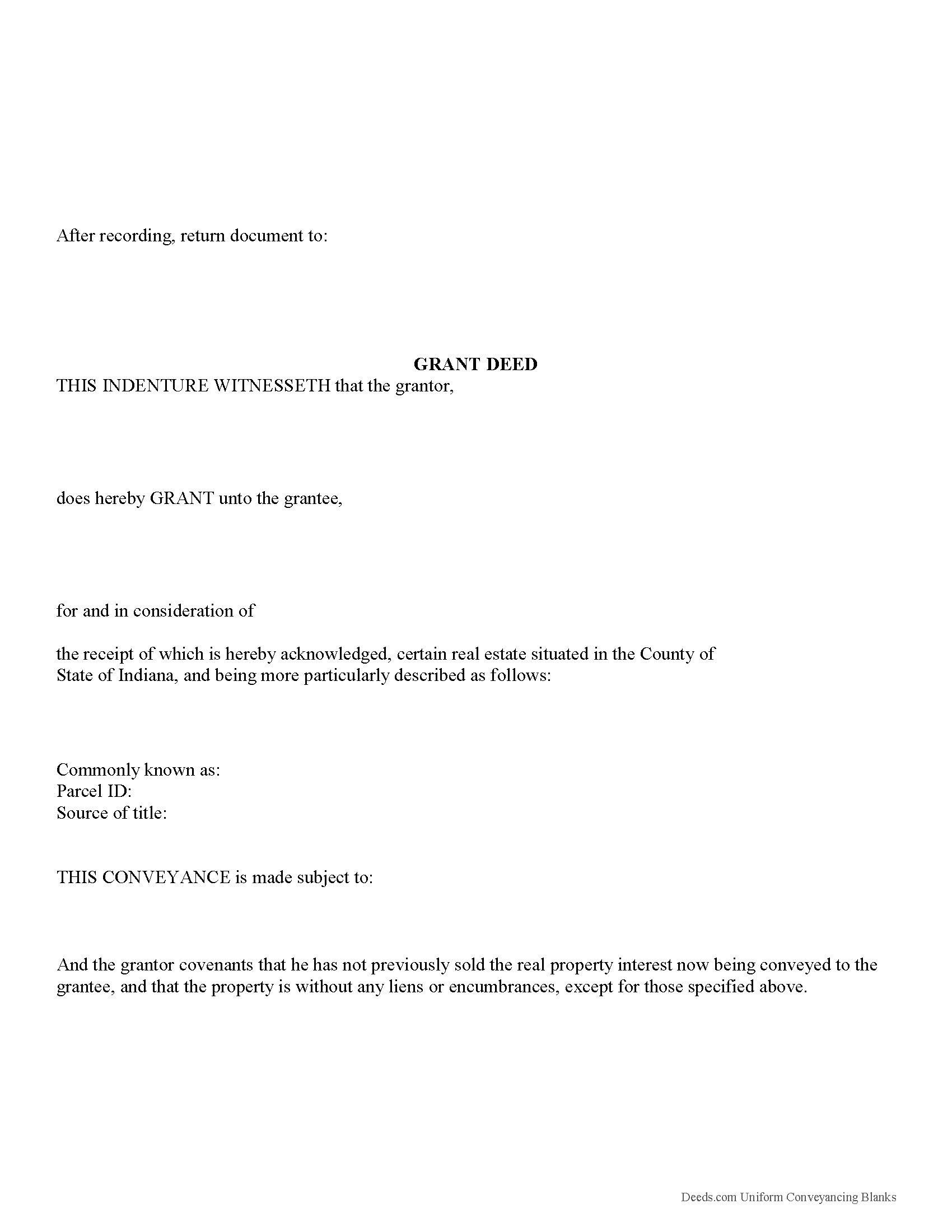Download Indiana Grant Deed Legal Forms

Indiana Grant Deed Overview

A grant deed is a legal document used to transfer, or convey, rights in real property from a grantor (seller) to a grantee (buyer). It contains implied covenants that the grantor has not previously sold the real property interest and that the property is conveyed without any undisclosed liens or encumbrances. Grant deeds typically do not require the grantor to defend title claims.
A lawful deed includes the grantor's full name and marital status, as well as the grantee's full name, marital status, mailing address, and vesting. Vesting describes how the grantee holds title to the property. For Indiana residential property, the primary methods for holding title in co-ownership are tenancy in common, joint tenancy, and tenancy by entirety (I.C. 32-21-10-2). An estate conveyed to two or more people is presumed a tenancy in common, unless otherwise specified (I.C. 32-17-2-1). An estate conveyed to a married couple vests as tenancy by the entirety unless otherwise specified (I.C. 32-17-3-1). Joint tenancy must be written into the text of the document.
As with any conveyance of real estate, a grant deed requires a complete legal description of the parcel. Recite the source of title to establish a clear chain of title, and detail any restrictions associated with the property. The amount of consideration does not need to be in writing on the deed, but may be proved (I.C. 32-21-1-2). Finally, the form must meet all state and local standards for recorded documents.
Before submitting a grant deed to a county recorder in Indiana, the grantor must sign it in the presence of a notary public. Record the completed and signed deed, along with any supplemental documentation necessary for the specific transaction, in the recorder's office in the county where the property is located. Unless a deed is recorded in the manner provided by the Indiana Code, it is not valid against any person other than the grantor, the grantor's heirs and devisees, and those with notice of the conveyance (I.C. 32-21-3-3). Indiana gives priority of title to the party that records first, but only if the party also lacked notice of prior unrecorded claims on the same property.
This article is provided for informational purposes only and is not a substitute for the advice of an attorney. Contact a lawyer with questions about grant deeds or for any other issues related to the transfer of real property in Indiana.
(Indiana Grant Deed Package includes form, guidelines, and completed example)